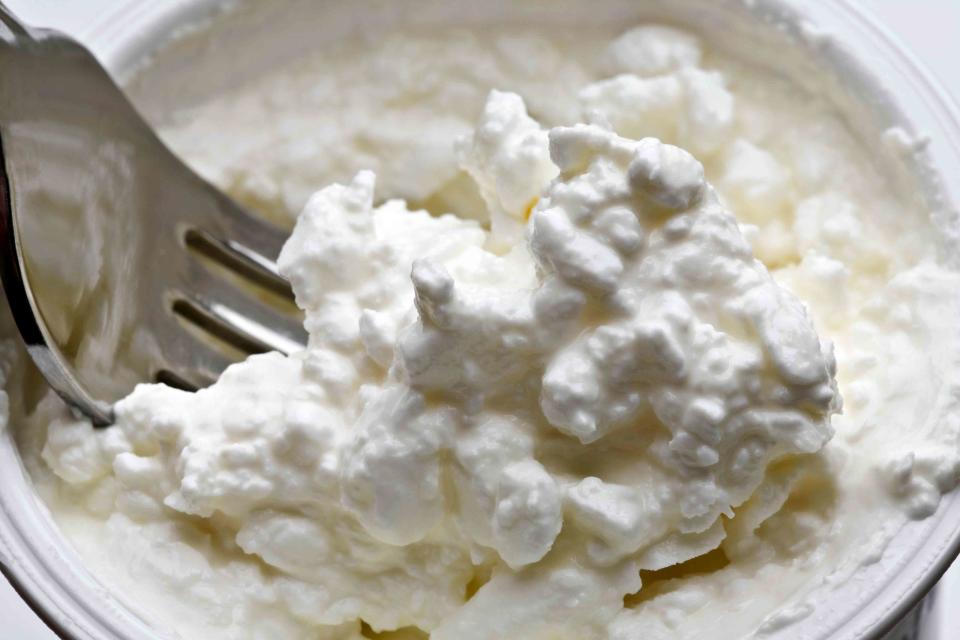Can You Freeze Cottage Cheese?
Yes, you can. But should you?

Getty Images
Cottage cheese is certainly having a moment, and there is no shortage of classic recipes with cottage cheese to enjoy, from Cheesy Savory Kugel to Lime Jello Salad. But if you stocked up at the store and find yourself tapped out of ideas, you may wonder if you can freeze cottage cheese to avoid having to throw it out.
The good news is yes, you can freeze cottage cheese, but world master chef Fred Tiess tells Southern Living it’s important to know the cottage cheese you put in the freezer likely won’t be the same cottage cheese you take out. The result is an icy, or grainy, version of cottage cheese that can also impact taste.
"Freezing will change the texture of the cottage cheese, because of the high moisture content," he explains. "When you freeze cottage cheese, ice crystals will form which will result in a water separation once it is defrosted.
Meet Our Expert
Fred Tiess is a master instructor at the College of Food Innovation and Technology, Johnson & Wales University, Charlotte Campus.
Can You Freeze Cottage Cheese?
Even though technically you can freeze cottage cheese, it’s important to know the taste and texture will likely change once frozen.
Cottage cheese is produced when an acid is added to milk.
“It is classified as a fresh cheese like ricotta, bakers, paneer, and queso fresco cheese,” Tiess explains.
Tiess says separating the curds from the whey is a process that has been practiced for thousands of years as a way to preserve the protein from milk. Cottage cheese, like most fresh cheeses, must be stored in the refrigerator to prevent the mold and bacteria growth.
"In recent times cottage cheese has been promoted as a higher protein substitute for meat, particularly during World War II when meat was rationed," he says. "And with the transition from the ice box to the electric refrigerator, the storage of fresh dairy products became more efficient."
How To Freeze Cottage Cheese
For storing in the freezer, package cottage cheese in a freezer-safe storage container or plastic bag, making sure to properly label and date the outside.
If you have decided to freeze cottage cheese, you'll need to thaw it overnight in the fridge before you use it.
"If you want to use it as an ingredient for things like cheesecake, bread, kolache or kugel, it would be best to puree the defrosted cottage cheese first," Tiess says.
Related: Can You Freeze Coffee Creamer? Try These Two Easy Ways
How Long Can Cottage Cheese Last in the Freezer?
Depending upon the container of cottage cheese, like most frozen foods, it will last indefinitely at a constant subzero temperature. But its condition may deteriorate as it sits.
"The issue of concern is freezer burn and the integrity of the plastic container that it is frozen in," Tiess says. "Six months is a practical time limit to store your frozen cottage cheese."
Related: Can You Freeze Cream Cheese?
How To Thaw Cottage Cheese
Tiess says it is best to thaw frozen foods overnight in the fridge so that the product evenly thaws and does not go above 40 degrees Fahrenheit.
"Once thawed, the cottage cheese should be used immediately or discarded," Tiess says, adding that consumers should never refreeze products like cottage cheese or proteins for food safety reasons.
Related: Can You Freeze Milk?
How To Use Leftover Cottage Cheese
If after weighing the pros and cons of freezing cottage cheese, you have decided to use up what is remaining in your refrigerator, Tiess offers an easy solution.
"If you have several cups of leftover cottage cheese and want to make something that you can freeze and enjoy later, consider making a banana berry cheesecake popsicle," he says.
For each cup of cottage cheese, blend in a ripe banana, a cup of frozen blueberries and a tablespoon of honey. Blend until smooth, then freeze the puree in a popsicle mold with sticks overnight.
"This higher protein dessert is a quick way to make sure that the cottage cheese is enjoyed as a sweet treat during the hot summer months," Tiess says.
For more Southern Living news, make sure to sign up for our newsletter!
Read the original article on Southern Living.

